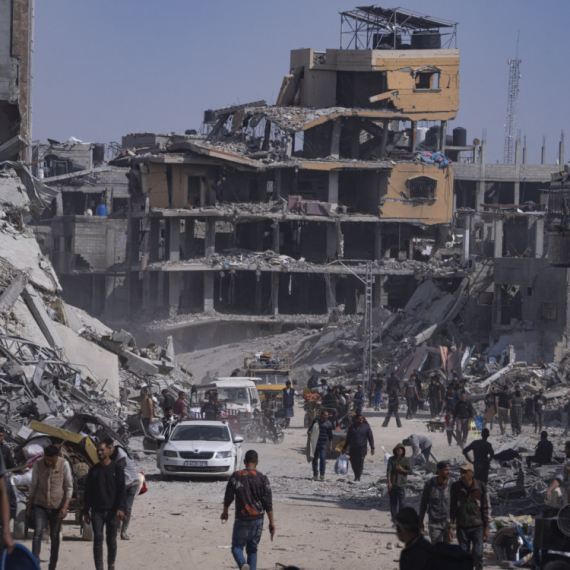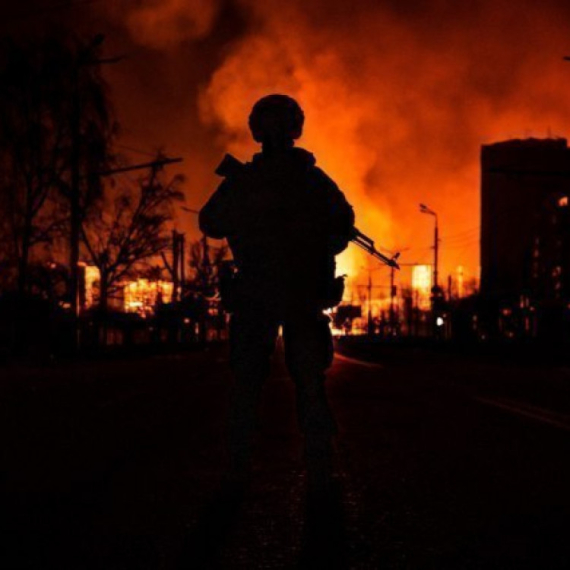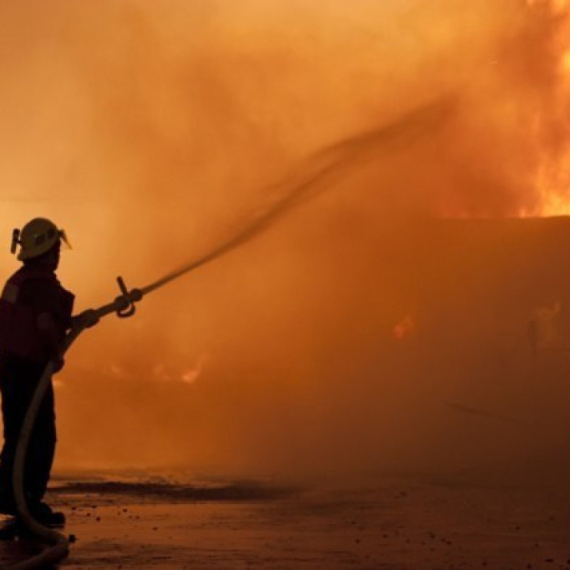Darko Šarić case - key moments
Alleged drug lord Darko Šarić first grabbed the headlines in October 2009 when the Uruguayan police seized 2.8 tons of cocaine at the port of Santiago Vazquez.
Tuesday, 18.03.2014.
16:58

Darko Šarić case - key moments
The Belgrade police simultaneously arrested members of Šarić's gang in Serbia.In January 2010, an international arrest warrant was issued for Darko Šarić.
In February 2010, the Montenegrin police department announced that Šarić, who was suspected of smuggling cocaine, had unlawfully left the territory of Montenegro several days before the Interpol bureau in Montenegro received the international arrest warrant.
Head of the Interpol National Central Bureau for Serbia Miloš Oparnica told the Belgrade-based broadcaster B92 on February 15, 2010 that police started dealing with Darko Šarić as early as in 2010 due to money laundering.
Oparnica said that at least 15 countries delivered to Serbia the information about the man who ran the biggest drug ring in this part of Europe - Darko Šarić.
On April 13, 2010, the Organized Crime Prosecutor's Office issued an indictment against Šarić's gang.
The day after that, the then state secretary at the Ministry of Justice Slobodan Homen said that the key objective of the fight against drug kingpin Darko Šarić and other criminal gangs is shedding light on his collusion with certain officials from public companies, as well as state officials.
As the first step, Homen noted investigations into the money trail in the Maestral Tours company that was seized from the Darko Šarić gang.
Among other things, Maestral Tours owned two hotels in Novi Sad, Vojvodina and Putnik, that were acquired via the Palić company.
Homen also said that the big money, drug deals and Šarić's power were evident from 2004 to 2009, and in these five years one should look for the people in power that abetted Šarić, when it comes to money laundering.
There are three tracks of the investigation when it comes to ascertaining who protected the Šarić gang- state officials, political parties and officers at the Interior Ministry, Homen said.
Serbia's Organized Crime Prosecutor Miljko Radisavljević issued a new indictment against Šarić and eight more persons on August 6, 2010 for laundering over EUR 20 million acquired through the sale of cocaine.
Radisavljević said that the sentence for laundering such an amount of money is between two and 12 years in prison. The prosecutor said that the money obtained through illegal drug trade was invested in purchasing farmland and hotels in Vojvodina, and other privatizations in Serbia.
Šarić's brother Dusko was captured on Italy's arrest warrant in Montenegro in October 2010 as he was charged with heading a criminal group which traded in cocaine in this country.
In October 2011, the Special Prosecution issued the fifth indictment against Šarić and his closest associates.
The trial to Šarić and his gang for smuggling over two tons of cocaine from Latin America to Western Europe formally began before the Belgrade Special Court on March 9, 2012 in line with the provisions of the new Criminal Procedure Code.
Most of their property was impounded according to the Law on Seizure and Confiscation of the Proceeds from Crime, which will stay in possession of the government bodies until the end of the criminal proceedings.
The Organized Crime Prosecution brought a total of five indictments against Darko Šarić over drug trafficking and money laundering.
The Belgrade Special Court passed a decision on February 26, 2014 that the passport should be seized from Novi Sad-based lawyer Radovan Štrbac suspected of forwarding police information on surveillance and tapping to members of the Šarić gang which he received from Branko Lazarević, head of the office of then interior minister Ivica Dačić.
Štrbac is standing trial before the Special Court over the accusations of laundering Darko Šarić's money obtained through the sale of cocaine from South America by purchasing companies and homesteads in Vojvodina. However, during the hearing in February 2011 Strbac claimed that he had purchased the companies for himself rather than Šarić.
Darko Šarić was born on October 21 in Pljevlja, Montenegro.
He was convicted six times before the Municipal Court in Pljevlja over various crimes. The first time he was convicted as a juvenile offender in 1988.
Šarić received the Serbian citizenship, passport and ID in 2005 which, according to officials' statements, is also subject to investigation.



























































Komentari 1
Pogledaj komentare